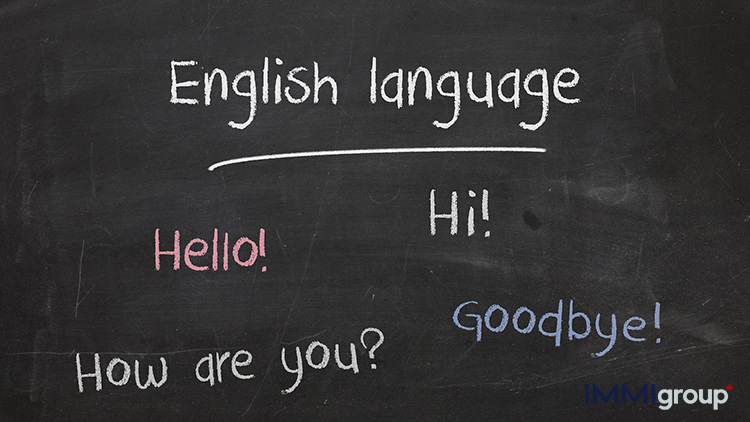Canadian Citizenship Language Requirement

Language Requirements for a Canadian Citizenship Application
Since October 2012, CIC (now IRCC) has mandated that all applicants for Canadian citizenship provide proof that they are able to speak either English or French with enough fluency that they can function in Canadian society. As proof, you have to provide one of the following from an English or French speaking country or school, including Canada:
- Copy of high school diploma, or
- Copy of college or university diploma.
If you have either of these diplomas, they must be from a country where the main language is either English or French (such as USA, England, France, Jamaica, etc.), OR they must be from an English or French university in any country such as John Cabot University in Rome, Italy or American University of Beirut in Beirut, Lebanon.
A single course in English or French language does not meet the requirement for Canadian citizenship. A trade certificate such as arborist, HVAC technician, etc. from Canada by itself is also not acceptable. You must have earned a full diploma and provide a copy of it or transcripts from the school showing that you completed the diploma.
Keep in mind that you must have graduated from the school for your transcripts to qualify as your language requirement.
If you haven’t graduated or earned a diploma which will work for the application, you can simply take one of the acceptable language tests. IRCC has a list of language test providers whose results they will take as proof that you speak the language. Please see the list below.
Practice for the Citizenship Test
Signs your proof of meeting the language requirement may not be accepted:
- Your diploma or transcripts are in a language other than English or French
- Your diploma or transcripts are in English or French, but your diploma is from a school which does not specify that it is an English or French School
- You did not complete your degree
- Your transcripts do not confirm that you graduated
- You completed courses in English but did not receive a high school, Bachelor’s, Master’s or Ph.D. degree in English or French
- You completed a degree but not all of your classes were in English or French – 100% of your classes must be in English or French
- You have earned a trade certificate in Canada only, but do not have a diploma
Acceptable Language Tests for Canadian Citizenship
- Canadian English Language Proficiency Index Program General test (CELPIP-G),(not the academic version) or
- CELPIP-General LS – a two-skills (listening and speaking) version of the CELPIP general test or
- International English Language Testing System (IELTS), general training, not the academic version or
- Test d’Évaluation de Français (TEF) or Test d’Évaluation du Français adapté au Québec(TEFAQE) or TEF épreuves orales
- Certain test results if used for Quebec immigration purposes in the past
- For Manitoba: Progress report from Manitoba government issued since January 2009. Ensure your report indicates speaking and listening skills are at least at “beginning CLB/NCLC level 5” or higher.
- For Quebec: Bulletin by the Ministère de l’immigration et Communautés culturelles Québec (MICC) issued since June 2001. Ensure that your most recent assessment in “ intéraction orale” is at least level 4 (Échelle québécoise)
- For British Columbia (BC): a document of proof from BC’s English Language Services for Adults (ELSA) program. Ensure that you have achieved at least CLB4 in listening and speaking skills.
- Language Instruction for Newcomers to Canada (LINC). Check the box if you successfully completed the course from January 2008 to October 31, 2012 and provide a copy of the certificate if available. If you successfully completed the LINC/CLIC course since November 1st, 2012, a certificate will be provided to you. A copy of this certificate is required. Note that completion of LINC/CLIC before 2008 does not qualify for proof of language ability.
Make sure that you meet the requirements first before filing your Canadian citizenship application. If you submit your application anyway with insufficient or suspect information, you could be setting yourself up to receive a Residence Questionnaire (RQ).